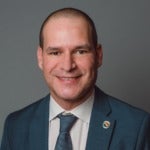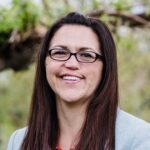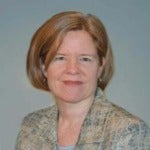Download the Event Presentation:2GI W1 Event Presentation
Ascend Resources: State of the 2Gen Field and Making Tomorrow Better Together
Denver Public School Resource: Aspen Institute Engagement Resources-DPS
Migration Policy Institute Resources: Key Sociodemographic Characteristics, Young Dual Language Learners in the United States, and Educating English Learners during the COVID-19 Pandemic
Immigrants are important to the growth and sustainability of the American economy and an important part of communities. However when looking at financial distress, immigrants lead an increasingly large proportion of families with youth and young children in poverty. This makes them an important target for two-generation (2Gen) services that build family well-being by intentionally and simultaneously working with children and the adults in their lives together. As 2020 unfolded with the COVID-19 pandemic, a weakened economy and increasing anti-immigrant rhetoric, the need for effective design and delivery of 2Gen services grew — and nonprofit organizations responded with quick thinking and action, inventiveness, and adaptation. Carefully and authentically building trust with immigrant families is more important than ever, and trusting relationships are a key component of any effective programmatic effort with immigrant and refugee communities.
On August 12, 2021, we heard from three organizations that are making remarkable success building trust with immigrant and refugee communities. Come learn how community-based non-profits can develop deeper relationships with their immigrant family clients, how school systems can provide safe spaces to develop stronger relationships among parents, children and teachers, and how home visiting programs can increase participation by hiring and retaining staff that immigrant families trust. Hosted by the Aspen Institute Community Strategies Group in partnership with the Migration Policy Institute and Ascend at the Aspen Institute, this event is the first of a four-part webinar and peer learning series that seeks to unpack the nuts and bolts of creative strategies that nonprofit organizations have implemented to deliver 2Gen services to immigrant families, youth and children. These events are open to anyone interested in learning more about work with immigrant families, and no prior 2Gen knowledge or experience is necessary.
Our Story Speakers
 Felipe Pinzon, Executive Director, Hispanic Unity of Florida
Felipe Pinzon, Executive Director, Hispanic Unity of Florida
Felipe is responsible for the planning, implementation, and oversight of Hispanic Unity of Florida’s programs and services. He is also responsible for agency strategy, development and sustainability. Felipe has spent over 25 years working with social service and educational organizations, including 18 years managing multiple programs and funding sources. Felipe has served on the Florida Department of Children and Families (DCF) Advisory Committee on Economic Security, Florida Prosperity Partnership Board of Directors and Sheridan Technical Center School Advisory Board. He also serves on the Greater Fort Lauderdale Alliance Board of Directors, the United Way of Broward County Public Policy Committee and is a Co-Chair of the Six Pillars Social Justice and Racial Equity. In 2009, he was awarded the Distinguished Service/Outstanding Young Non-Profit Executive Meeting Award from the Jaycees Hollywood Junior Chamber. Most recently, he received the 2017 Hispanicize Positive Impact Award.
 Alece Montez, Associate Chief of Family and Community Engagement, Denver Public Schools
Alece Montez, Associate Chief of Family and Community Engagement, Denver Public Schools
Alece has consistently leveraged her career positions to change processes, create tools, and impact systems to ensure community decisions are guided by the broader community. Prior to coming to Denver Public Schools, Alece worked as an Urban Planner for cities and counties, and Air Force bases, and as a community engagement expert at a foundation. Through unique partnerships with the community at local cities, Alece helped change land use and zoning codes by listening to, working with, and responding to the people. Because of her fresh perspective on engagement, she’s received honors and awards from organizations like the American Planning Association, International Association for Public Participation, Colorado Department of Local Affairs, Community Development Society, Air Mobility Command, and the Air Force Center for Environmental Excellence. Prior to coming to the District, Alece sat on numerous boards and committees such as The Funders Network, COFIE, PLACES, Aspen Institute’s Rural Development Innovation Group, and Philanthropy Colorado.
 Vickki Maloid, Early Childhood Program Manager, Catholic Charities of the Diocese of Baton Rouge
Vickki Maloid, Early Childhood Program Manager, Catholic Charities of the Diocese of Baton Rouge
Vickki manages both the Parent and Child Together (PACT) program and Home Instruction for Parents of Preschool Youngsters (HIPPY) at Catholic Charities of the Diocese of Baton Rouge. She has worked in home visiting and early childhood for over 20 years, starting in Pointe Coupee Parish with HIPPY in 1999. Vickki is a former HIPPY parent herself, and has held several other related positions including clerk, HIPPY home visitor, Assistant Coordinator, and HIPPY Advisory Council Member. In between supporting the Pointe Coupee Parish HIPPY program, Vickki also served as Family Advocate for Pointe Coupee Head Start from 2012-2014, a program that has similar goals of assisting families with resources and preparing their children for school. Over the past 20 years, Vickki has participated in many trainings on early childhood development, and because of her commitment to her community, she also serves local families in different volunteer capacities.
 Stephanie K. Sterling, Director of Family Services, Catholic Charities of the Diocese of Baton Rouge
Stephanie K. Sterling, Director of Family Services, Catholic Charities of the Diocese of Baton Rouge
Stephanie has rich experience with inpatient, outpatient, and primary care behavioral health as well as pregnancy counseling. In addition to her work at Catholic Charities of the Dioceses of Baton Rouge, she serves on the Louisiana Governor’s Children’s Cabinet Advisory Board, the Children’s Code Adoption Subcommittee, the Louisiana Safe Haven Consortium, and is the Vice Chair of the Catholic Charities USA Child, Youth and Family Services Steering Committee. Stephanie has successfully written and managed multiple grants from various funding sources. Additionally, she has presented at local, statewide, and national conferences on Clinical Adoption Practice, Self-Care, and Disaster Behavioral Health. Stephanie received a MSW degree from Tulane University, and holds a 90-hour post graduate certification in Adoption and Foster Care Competence.
2Gen Perspectives
 Sarah Haight, Associate Director, Ascend at the Aspen Institute
Sarah Haight, Associate Director, Ascend at the Aspen Institute
Ascend is a policy program of the Institute and a hub for breakthrough ideas and collaborations that move children and their parents toward educational success and economic security. At Ascend, Sarah manages the national Ascend Network; two-generation practice and technical assistance strategies; national convenings, including the 2Gen Practice Institute, ThinkXChange, and roundtables on key areas of 2Gen approaches; and directs programming of special projects, including managing the Aspen Family Prosperity Innovation Community. Prior to The Aspen Institute, Sarah worked as an editor and journalist at Conde Nast in New York City. She earned her Master of Social Work degree from the Silver School of Social Work at New York University and has worked as a therapist in direct-practice clinical settings with women with low incomes, with a focus on maternal mental health. She is licensed to practice social work in New York and the District of Columbia.
Policy Discussion
 Margie McHugh, Director of the National Center on Immigrant Integration Policy at the Migration Policy Institute
Margie McHugh, Director of the National Center on Immigrant Integration Policy at the Migration Policy Institute
The Migration Policy Institute’s National Center on Immigrant Integration Policy is is a national hub for leaders in government, community affairs, business and academia to obtain the insights and knowledge they need to respond to the challenges and opportunities that today’s high rates of immigration pose for communities across the United States. It provides in-depth research, policy analysis, technical assistance, training and information resource services on a broad range of immigrant integration issues. Margie’s work focuses on education quality and access issues for immigrants and their children from early childhood through K-12 and adult, post-secondary and workforce skills programs. She also leads the Center’s work seeking a more coordinated federal response to immigrant integration needs and impacts, and more workable systems for recognition of the education and work experience immigrants bring with them to the United States.
Our Moderator
 Chris Estes, Associate Director, Aspen Institute Community Strategies Group
Chris Estes, Associate Director, Aspen Institute Community Strategies Group
Chris has strong policy expertise and practice experience at the community, state and federal levels on poverty, housing and community development. Most recently, as Senior Consultant with the Housing Assistance Council, he helped 40 rural organizations across the country build capacity and community development efforts in the face of the pandemic and natural disasters. Prior to HAC, he served as the Interim Executive Director of the Raleigh/Wake Partnership to End Homelessness, a continuum of care for the county’s homeless programs. Earlier, he was Vice President of Business Strategy and Advocacy at Rebuilding Together, a national network of local nonprofits that provide home repair to low-income homeowners, where he led its national policy efforts. For five years, Chris was President/CEO of the National Housing Conference in Washington, DC, where he led the strategic direction of NHC’s policy, communications and research work.
Trust Building Peer Learning Opportunity
In addition to the webinar, we invite you to join us from 2:00 to 4:00 PM ET on August 26 for a peer-learning session on building trust and engagement with immigrant families. This session will build on the webinar by addressing the thorny issues around trust building with immigrant families. Selected teams will bring forward real challenges that they are facing on the topic of building trust by sharing their peer advice question. Led by a team of experts, all other participants will offer practical advice to address that thorny question.
Who should participate?
- Participate if you have a thorny issue and you are willing to share it on a virtual peer learning session. You may have one of the two questions that will be selected to receive real-time ideas from industry experts and your peers. You can submit your peer learning question below.
- Participate if you have wisdom to share about building trust. Working in small groups, you will have the opportunity to share advice with your peers.
- Participate if you want to learn from others. While only two peer learning questions will be addressed, the questions selected will be ones that many in the group want addressed.
How can I join the peer learning session?
Just register for the webinar and indicate your interest to participate in the peer learning session. It’s as simple as that!

